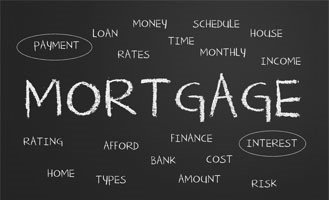Credit Cards for the Credit Challenged
If you want to buy a home and don’t have a bucket load of cash – you are going to need a mortgage.
In order to get a mortgage, you are going to need credit…
When you get a mortgage, banks lend you “their” money and secure the loan against the property you are buying. Therefore they want to know how you’ve handled credit in the past.
- Bad credit = high interest rates
- Really bad credit = NO mortgage
If you have bad credit, you need to improve your credit to get a mortgage/better interest rates.
When you have had credit challenges – you are going to be limited with the number of credit card companies willing to offer you credit.
In order to buy something on credit, most lenders follow the Rule of 2
- 2 lines of credit (credit card, line of credit, loan etc.)
- Minimum credit limit $2000
- 2+ years (24+ months) history
One of the quickest ways to rebuild your credit is to get 2 credit cards.
Since you’ve had credit blemishes in the past, many credit card companies aren’t interested in giving you more credit.
- If you have had any files that have gone to collections, you MUST pay those off ASAP.
One way to get a credit card for the credit challenged, is to get a secured credit card.
DEFINITION of Secured Credit Card
- A secured credit card is a credit card that requires a security deposit. Secured credit cards are generally for individuals whose credit is damaged or who have no credit history at all.
- A secured credit card works just like a traditional credit card . A secured credit card can help you establish or rebuild your credit .
- The security deposit will depend on your previous credit history and the amount deposited in the account.
- Security deposits for secured credit cards tend to range between 50% and 100%.
- The security deposit can not be used to pay off the balance on the credit card.
- Typically, secured credit card companies will increase the limit on your card once you have proved you are a good credit risk. This takes time. With continued good credit history over a few years, they will refund your security deposit and issue you a regular credit card.
Five Tips for Wisely Using a Secured Credit Card
- Use for small purchases you can pay off each month
.
- The point of using a secured credit card is to show your ability to responsibly charge and then pay off your balance. To do this, make a few purchases each month and pay your bill in full. By NOT carrying a balance you avoid paying interest & build your credit.
- Pay on time, and more than the minimum payment.
- To get a healthy credit score – it is essential that you pay on time. Ideally you want to pay off your balance in full. If you can’t pay the full amount, pay down as much as you can, so you are reducing your credit utilization (the amount you owe compared to your credit limit).
- Make Multiple Payments every month.
- Making more than one monthly payment can help keep your balance low. A large balance reduces your overall credit which can negatively affect your credit score. If you make a large purchase, pay it off quickly to keep your credit utilization low.
- Set Payment Alerts.
- Even the most organized person misses a payment now and then… That’s OK for people with good credit… if you have credit blemishes you’ve lost your “get out of jail free” privilege. One missed payment is one time too many! Set up payment reminders 1 week before your payment is due.
- Enroll in Autopay.
- If you are concerned about making your payments on time? The easiest plan is to enroll in autopay, which allows your credit issuer to automatically deduct the monthly balance form your bank account, so you don’t have to keep track of bills. This assumes you have the money in the account to pay off the credit card.
I’ve worked with many clients that have had credit issues. My clients have had success with Capital One Secured MasterCard and Canadian Tire cards.
For other options, check out this BLOG I found Top 6 Secured Credit Cards for Canadians
Please note: Prepaid Credit Cards do NOT help you build credit. You’ve prepaid the amount on the card, so no one is actually offering you any credit.
Need more information about credit… check out my BLOGs
Mortgages are complicated, but they don’t have to be… Engage an expert!
Give me a call and let’s discuss a mortgage that works for you (not the bank)!







